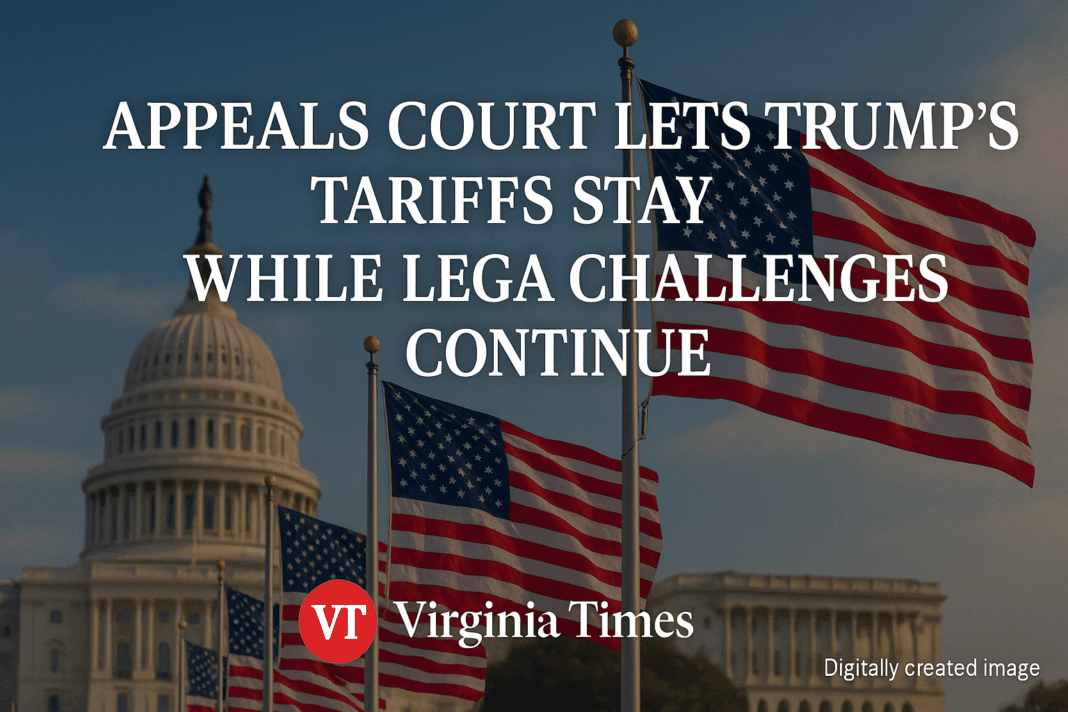- Federal Appeals Court issues stay, allowing tariffs to remain in effect.
- President Trump hails ruling as a “great and important win for the U.S.”
- Court of International Trade had blocked the tariffs, citing overreach under IEEPA.
- Oral arguments scheduled for July 31 before the full appeals panel in Washington, D.C.
- Legal debate focuses on executive authority limits in trade policy.
The U.S. Court of Appeals for the Federal Circuit has issued a stay allowing the Trump administration to temporarily enforce its controversial “Liberation Day” tariffs on imported goods. The ruling, delivered on June 10, 2025, follows a lower court decision that invalidated the tariffs under the International Emergency Economic Powers Act (IEEPA).
According to Reuters, this decision permits President Donald Trump to continue imposing tariffs on imports from most U.S. trading partners, along with specific duties on Canada, China, and Mexico.
Trump welcomed the ruling in a Truth Social post, calling it a major legal and economic victory:
Case Background
The legal battle began in April 2025, when Trump signed Executive Order 14257, imposing tariffs under IEEPA authority. Dubbed “Liberation Day” tariffs, the order set a 10% baseline duty on most imports, with higher rates for nations deemed to undermine U.S. sovereignty or contribute to drug trafficking and immigration surges.
A coalition of 12 states and multiple small businesses challenged the tariffs before the U.S. Court of International Trade (CIT), arguing that IEEPA does not grant the president unilateral power to impose tariffs for economic protectionism. On May 28, the CIT ruled the order unlawful and issued a nationwide injunction.
The federal government appealed the ruling, leading to the Federal Circuit’s stay on enforcement restrictions. Oral arguments before the full appeals panel are scheduled for July 31 in Washington, D.C.
Legal and Economic Implications
The case will test presidential authority under IEEPA, with legal experts noting that the ruling could redefine Congress’ role in economic policy.
According to Peter Harrell of Lawfare, restricting Trump’s ability to use IEEPA for tariff implementation would align with historical precedent:
Meanwhile, economic analysts caution that maintaining the tariffs could increase costs for American businesses and consumers due to continued supply chain disruptions.
Next Steps
- July 31, 2025 – Full U.S. Court of Appeals for the Federal Circuit will hear arguments en banc.
- Post-ruling: A Supreme Court appeal remains possible.
- Congress: Lawmakers may introduce legislation clarifying IEEPA’s limits in trade policy.
Global Reaction
Several U.S. trading partners, including the European Union and China, have raised concerns about legal uncertainties surrounding the tariff program. Some have warned of retaliatory measures should the tariffs be upheld long-term.
Conclusion
For now, the “Liberation Day” tariffs remain in effect, with billions of dollars in duties continuing to be collected. The July 31 hearing will be a critical moment in determining whether Trump’s actions fall within emergency presidential powers or require new statutory mandates from Congress.
A global media for the latest news, entertainment, music fashion, and more.














